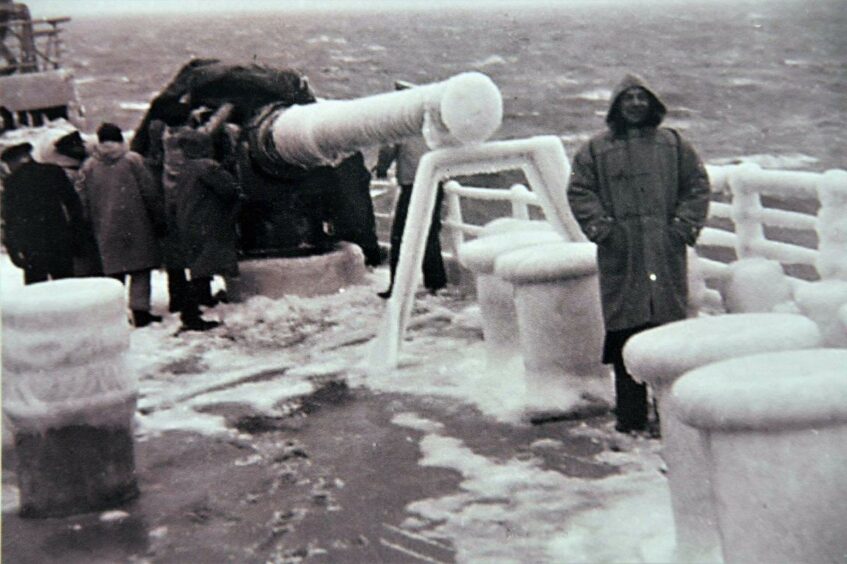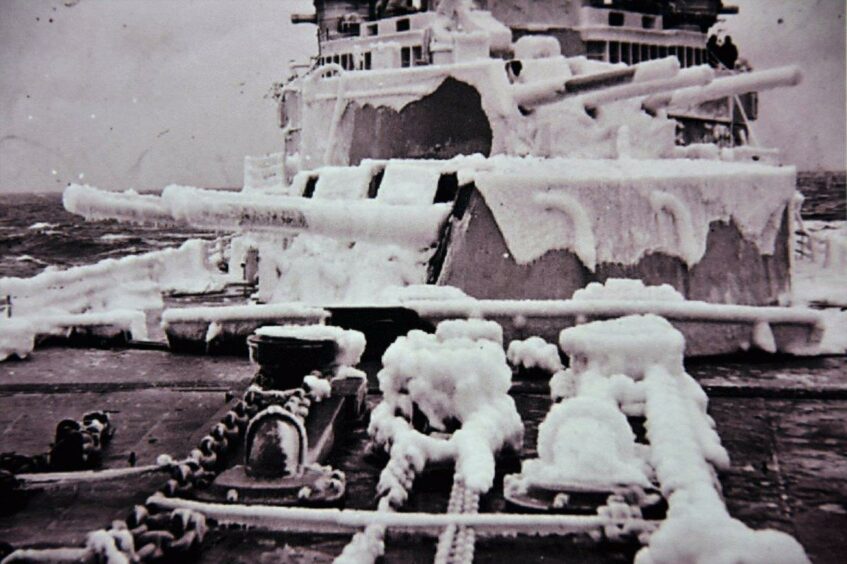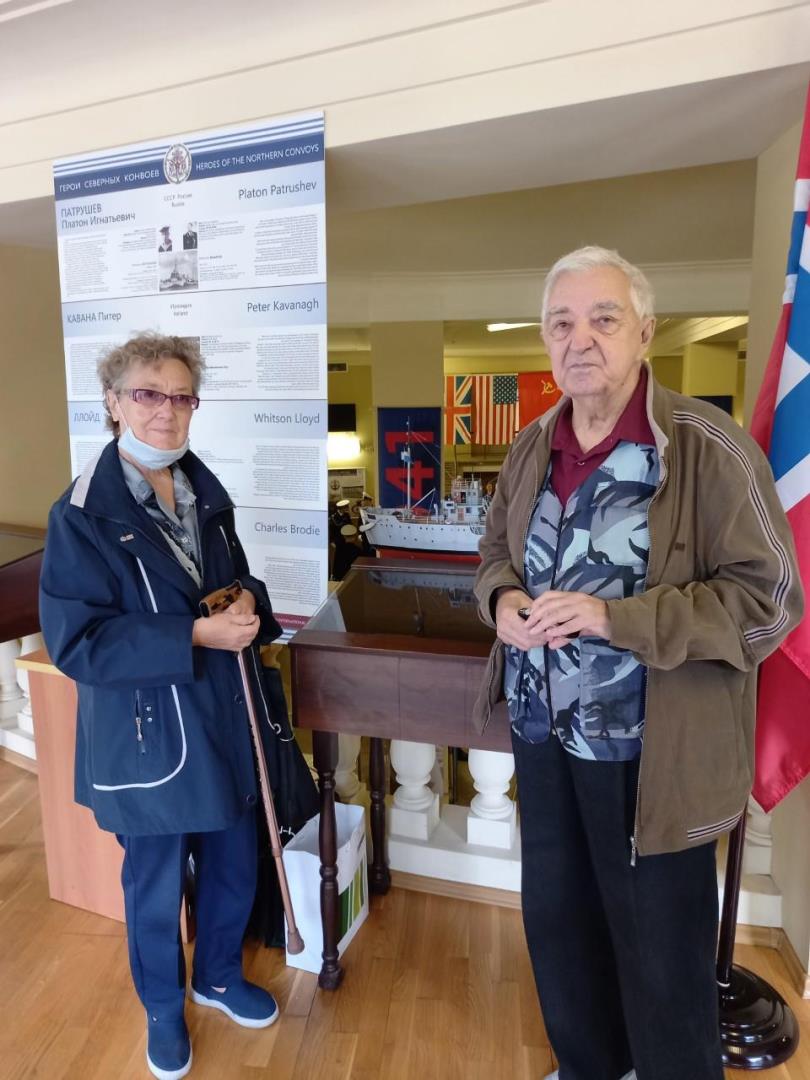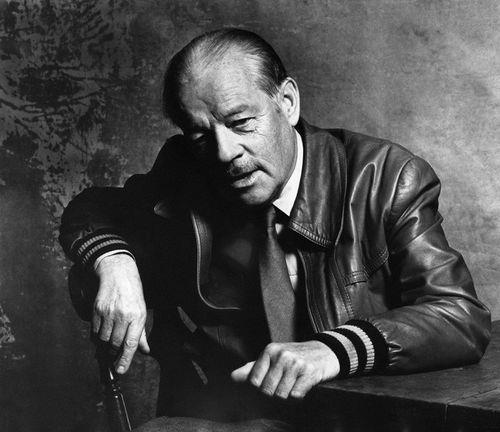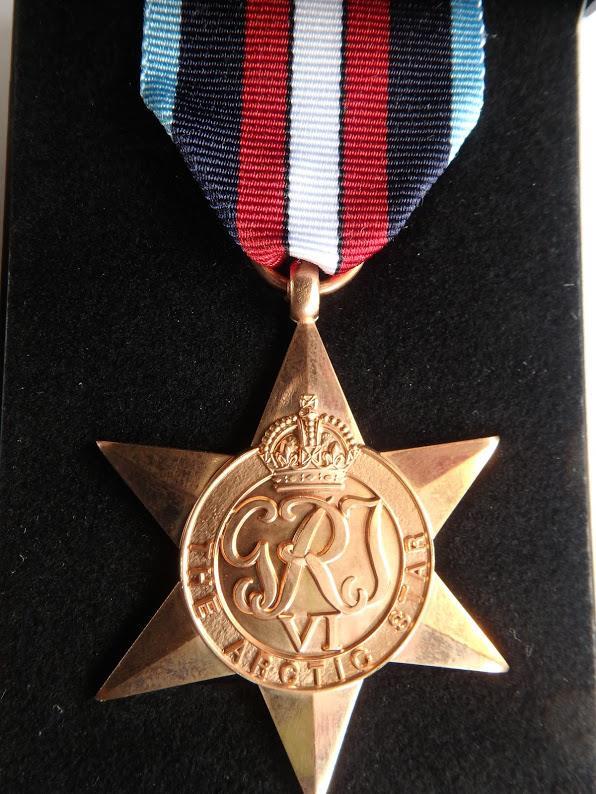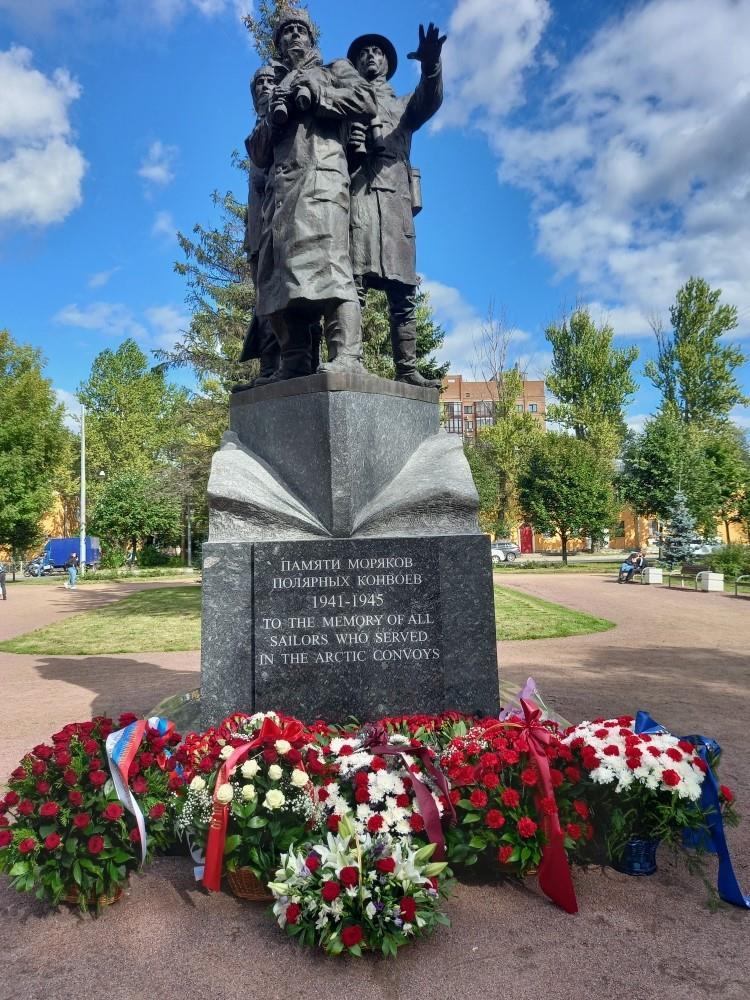Nobody who took part in the Arctic convoys during the Second World War ever forgot the horror they endured in what Winston Churchill described as “the worst journey in the world”.
Many felt guilt at having survived where so many comrades perished in Siberian conditions as they battled to keep the supply channels open and deliver food and other provisions to communities in northern Russia.
Charles Brodie from Dundee was among those brave fellows who risked their lives in stormy, frozen seas, aware of the risk from enemy submarines, and who saw his shipmates struggling to cope with sub-zero temperatures.
And now, his son, Chic, has spoken about his admiration for those who served their country without any regard for their own safety.
He has also related how one of the men his father served with on the vessel, HMS Royalist, was none other than Alistair MacLean, who later became a best-selling author and recalled the convoys in his book, HMS Ulysses.
Mr Brodie is determined to ensure that the unstinting sacrifice and courage of those who sailed on the convoys is emphasised to future generations.
The majority of the comrades who ventured into the Arctic more than 75 years ago have now left us, including Charles, born in 1915, but there are still a few old campaigners, whose eyes may be full of sleep, but who were fully awake when they fought fascism on these mercy missions in the early 1940s.
His first ship, The Comorin, was sunk off the west of Ireland and he spent time recuperating as an injured survivor.”
Chic Brodie
He has provided us with several images of his dad’s many medals and commendations while supplying illustrations of how he defied adversity to continue his service in the Royal Navy.
A talented boxer in the bantamweight division when he was pursuing his sporting interests, Charles was clearly a fighter with a conscience and a commitment to making sure the Soviet people didn’t starve when the conflict between the Allies and the Nazis was at its fiercest.
He said: I was asked to provide details of my father’s participation in the Arctic convoys, which carried aid to the people of Russia and particularly in (the cities of) Murmansk and Archangel.
“My dad was a proud Dundonian, who was born in Queen Street during the First World War and he went to Cowgate School.
“He later signed up to the Royal Naval Volunteer Reserve in Dundee and was trained on the Crecy before joining the Navy in 1938 as an able-seaman
“His first ship, The Comorin, was sunk off the west of Ireland and he spent time recuperating as an injured survivor.
‘I shed tears at HMS Ulysses’
“But then he joined HMS Royalist in 1943 and that vessel was a key player in the Arctic convoys for the rest of the war.
“Alastair McLean, the well-known novelist, also served on the Royalist and used his experiences in the books he wrote later in life.
“I have read HMS Ulysses several times and openly cried the first time that I read it because I never understood what my dad and his colleagues had experienced in extreme danger to get food and defence resources to the grateful people of Northern Russia.”
More than 3,000 British sailors and airmen died between 1941 and 1945 while involved in the convoys, which were a vital – if often unheralded – part of Churchill’s attempts to keep Stalin in the alliance against Hitler.
The Russians have always been grateful to the men who were on these vessels – there were as many as 1,400 Royal Navy and Merchant Navy involved during the hostilities – because they realised that their population in many places would have been overwhelmed and left without any food and supplies, but for the regular arrival of ships such as HMS Royalist with precious cargo.
‘Falling in the water was deadly’
As months passed and the casualty list mounted, it was an increasingly grim business, littered with tragedies and heartbreaking loss.
It was in this unforgiving theatre that the likes of Charles Brodie, Alistair MacLean and Monifieth-born Murray Haddow risked everything and eventually returned from the war with memories that haunted them.
I do remember, as a wee boy, being raised in a prefab on the Kingsway from 1948 and hearing my dad through the thin walls having, or so I suspect, nightmares about his experiences.”
Chic Brodie
MacLean, who produced such works as Where Eagles Dare, Ice Station Zebra, Fear is the Key and the Guns of Navarone, spoke later about these convoys as “missions which pushed men to the limits of their endurance” and “where everybody lived in fear on a constant basis”.
He knew that, if anybody ever fell into the water, “they were lucky if they could survive for even a few minutes”.
These were terrible times, which often left survivors with traumas that endured for decades.
Mr Haddow told us last year: “I went on six of these convoys after joining up as an 18-year-old in 1944 and they were grim.
“There was a constant threat of bombardment from above, of submarines from below and that is before you consider the weather conditions, the ice and the fierce winds which affected all our boats.
“It’s strange, though. I don’t recall being frightened when I was on these missions.
“I was only a teenager, I was with people I trusted as my friends, and there was a general feeling that we were all in the same boat and we just had to get on with it.
“It’s only now when I look back….”
There was the occasion when one of his sister ships was torpedoed by a U-boat and the teenager was on deck as the explosion tore the vessel to pieces.
He and his colleagues tried to mount a rescue operation, but the sea was unrelenting and Mr Haddow noticed the lights flickering on the stricken men’s life-jackets in the distance as they slowly drifted off to their deaths.
Chic Brodie, a former SNP MSP at Holyrood, was just a child in the aftermath of the global conflict, but spoke movingly this week about his efforts to commemorate the quiet heroics of his father.
He said: “Dad never talked about the convoys and it was only after I chased the Atlantic Star (medal) that he was due that I determined to find out more.
“I do remember, as a wee boy, being raised in a prefab on the Kingsway from 1948 and hearing my dad through the thin walls having, or so I suspect, nightmares about his experiences.
“That led me to discussions with Rob Gibson, my ex-colleague in the Scottish Parliament, about the Arctic Convoy Museum at Loch Ewe, which houses many of the details and artefacts of the convoys.
“My dad spoke a few times about the great German battleship Tirpitz, which was a lethal destroyer of many participants of the convoys, and his sense of justice which followed its sinking, although he also regretted the loss of the German lives on that destroyer.
“He occasionally talked of shipmates’ hands being frozen to guard rails because of the conditions and a few other memories.
“But he did wax lyrical about the Northern Lights which he experienced on the convoy paths.
“He loved the welcome of the Russian people in Murmansk and Archangel to all of the convoys and that is echoed today by the beautiful statue which the people there have unveiled as a tribute to the Allied effort.
“And, on his and my mother’s headstone in the Eastern cemetery on Arbroath Road (in Dundee), there is the word ‘miszpah’, which is the Russian for ‘love’.”
“I provided the Arctic Star he was awarded to the St Petersburg Maritime Museum in Russia, along with a toy woollen dog he made for me out of worn socks plus his certificate for crossing the Arctic Circle.
“These now feature in the specific tribute to the convoys which are housed in the museum itself.
“I’m just so proud of my dad and our city.”

